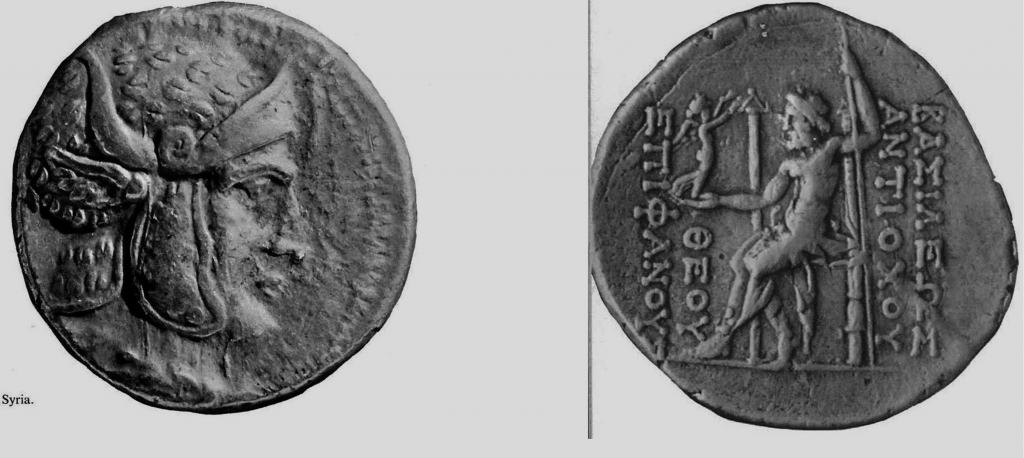11.02.20 Jn. 8:48-59
JESUS DECLARES HIS ETERNAL EXISTENCE
48 The Jews responded to Him, “Aren’t we right in saying that You’re a Samaritan and have a demon?”
49 “I do not have a demon,” Jesus answered. “On the contrary, I honor My Father and you dishonor Me. 50 I do not seek My glory; the One who seeks it also judges. 51 I assure you: If anyone keeps My word, he will never see death — ever!”
52 Then the Jews said, “Now we know You have a demon. Abraham died and so did the prophets. You say, ‘If anyone keeps My word, he will never taste death — ever!’ 53 Are You greater than our father Abraham who died? Even the prophets died. Who do You pretend to be?”
54 “If I glorify Myself,” Jesus answered, “My glory is nothing. My Father — you say about Him, ‘He is our God’—He is the One who glorifies Me. 55 You’ve never known Him, but I know Him. If I were to say I don’t know Him, I would be a liar like you. But I do know Him, and I keep His word. 56 Your father Abraham was overjoyed that he would see My day; he saw it and rejoiced.”
57 The Jews replied, “You aren’t 50 years old yet, and You’ve seen Abraham?”
58 Jesus said to them, “I assure you: Before Abraham was, I am.”
59 At that, they picked up stones to throw at Him. But Jesus was hidden and went out of the temple complex.
“The Jews responded to Him … You’re a Samaritan.” In this passage the phrase “the Jews,”[1] was not a reference to the leadership, but it was the common people who accepted the Pharisaic argument that Jesus was demon-possessed, or used demonic powers for His miracles. In this case, they accused Jesus of being demonized by saying He was a Samaritan. The cultural context is that in rabbinic demonology, a leading demon was named Shomroni, which was also used to refer to either any demon or to a Samaritan.[2] Since the Jews viewed the Samaritans as the lowest of low-life people, they sarcastically called Jesus a “Samaritan.” The statement was highly insulting and reflected their horrible ethnic attitudes toward the Samaritans.
“Are You greater than our father Abraham?” The Jewish leadership often accused Jesus of directly claiming to be deity.[3] But rather than making a statement that He was the “Anointed One,” meaning the “Christ,” which obviously would have been challenged, He lived, taught, and acted in a lifestyle so that men could observe His divine nature and make an intelligent decision that He was the expected “Anointed One.” His accusers made the same observation and what they concluded threatened them. They had become so arrogant that they believed they could kill the Messiah that God sent to deliver their land from the Romans.
“You’ve never known Him.” The word “know” (Gk. ginosko) means “a knowledge of experience,” more than mere facts, a relationship of trust and intimacy,[4] as opposed to “I know him” (Gk. oida), meaning an instinctive perception of facts.[5]
“Your father Abraham was overjoyed that he would see My day.” This astonishing statement indicates that Abraham had some type of future knowledge of the life and ministry of Jesus and he rejoiced at the thought of it. He knew that one day the whole world will be blessed through his descendants (Gen. 18:18). Ironically, the Jews, through their faith gave us the Bible, but through their unbelief, gave us the Messiah.

“Before Abraham was, I am.” In this passage and in John 10:30, Jesus made His absolute claim to deity. It infuriated the leading Pharisees and Sadducees who said the statement was blasphemy. The punishment for making a statement like this was death by stoning (Lev. 24:16).[6] The statement also brought memories of the second century B.C. King Antiochus IV Epiphanes, who claimed to be a god and instigated some of the worst persecutions that ever came upon the Jewish people.[7]

11.02.20.A. COINS OF ANTIOCHUS IV EPIPHANES. LEFT: A coin of Antiochus IV Epiphanes as a military victor and King of Syria (170 B.C.). RIGHT: A different coin of him shown as “god manifest.”
11.02.20.Q1 What are the three examples of where Jesus claimed divine authority that brought Him into conflict with the religious establishment?
Jesus did not openly declare His divine authority in His early ministry. But in the course of time, it became evident. First, by implication, then by straightforward statements as follows:
- In John 8:58 Jesus said that, “Before Abraham, I am.”
- In John 10:33 the Jews attempted to stone Jesus. When He asked them why, they responded and said it was because He was a mere man and made himself equal with God.
- In Luke 5:17-20 Jesus did not heal the paralytic, but said that “Your sins are forgiven you.” This was incredibly offensive to the Pharisees because, as they correctly said, only God could forgive sins.
Finally, it should be noted that the divine authority He claimed in the Great Commission, was told privately to His disciples, and not to the religious establishment.
[1]. The term “the Jews” is used in reference to no less than three Jewish groups in the gospels, and at times it is difficult to discern which group the gospel writer is referring to.
[2]. Fruchtenbaum, The Jewish Foundation of the Life of Messiah: Instructor’s Manual. Class 16, page 2. The name of the demon and its association with the Samaritans was deeply rooted in the centuries-old hatred between Jews and Samaritans. See 02.01.18 for more details.
[3]. See Jn. 5:18; 10:33; 19:7.
[4]. Tenney, New Testament Times. 109.
[5]. Tenney, The Gospel of John. 98.
[6]. Judicial punishment by stoning had not been practiced for centuries, so this was a hypothetical issue.
[7]. See 03.04.17 for more information on King Antiochus Epiphanies.